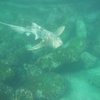
Angler education can benefit sharks
Fisher education can help protect vulnerable shark populations, a new study has found. The research showed that recreational anglers were more supportive of shark management and conservation if they had prior knowledge of shark conservation. Read the full story in Science Daily.
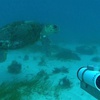
Reef Watch
Check out another great citizen science project: Reef Watch. Reef Watch in South Australia provides free training to community volunteers to monitor temperate marine environments using non-destructive, internationally recognised techniques. Volunteers generate valuable scientific data that informs adaptive management for conservation of the marine environment. Read more here.
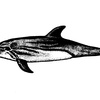
Dolphin Watch citizen science project in Perth
DOLPHIN WATCH in WA gathers community observations of one of the Swan Canning Riverpark’s most iconic species: the Indo-Pacific bottlenose dolphin (Tursiops aduncus). Read about this fantastic citizen science project at Science Network WA.
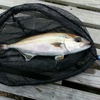
Amberjack in Tassie: southernmost sighting in Australia
An Amberjack (Seriolal dumerili) was recently caught by Ron Walker in Ansons Bay, Tasmania. As far as we can tell this is the southernmost sighting of this species in Australia! Check out the sighting here.
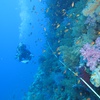
Thermal sensitivity of marine communities reveals the most vulnerable to global warming
The sensitivity of marine communities to ocean warming rather than rising ocean temperatures will have strong short-term impacts on biodiversity changes associated with global warming, according to new research. Read the full story at Science Daily.
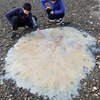
Marine invasive species benefiting from rising carbon dioxide levels
Ocean acidification may well be helping invasive species of algae, jellyfish, crabs and shellfish to move to new areas of the planet with damaging consequences, according to the findings of a new report. Read the full story in Science Daily.
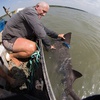
New shark specimens discovered near Cape York
Since the discovery of the Speartooth shark in 1982 there has never been a live adult specimen found anywhere - until now. Actually make that two. Researchers have captured a 2.2m female and a 2.3m male in the waters near Cape York, QLD and fitted them with satellite tags. The tags will last for about 2 months and record where the sharks travel, plus collecting data on depth and temperature …

IMAS study changing understanding of how global warming will affect marine biodiversity
A new study by University of Tasmania researchers and international collaborators has found that a key element of future changes in the distribution of marine biodiversity resulting from ocean warming is not as closely related to local warming rates as previously assumed. Read more in the University of Tasmania News.
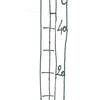
Ocean acidification: the forgotten piece of the carbon puzzle
Ocean acidification – the rise in ocean acidity due to the increased absorption of carbon dioxide (CO?) – is often thought of as consequence of climate change. However, it is actually a separate, albeit very closely-related problem. Read the full story in The Conversation.












